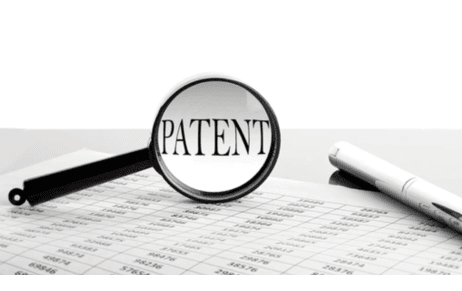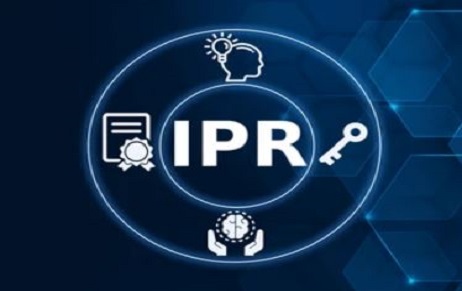Introduction In the realm of obtaining a patent right, conducting a ‘novelty search’ stands as…
Determining the legitimacy of Gene Patenting: Need for a regulatory regime in India
Introduction
Patenting a gene is an exclusive right granted to a person or organization that purports to be the first to discover a specific sequence of DNA (a gene). Patent holders have the exclusive right to restrict how a gene is used commercially and non-commercially for a certain amount of time once they have received a gene patent. Gene patents have frequently resulted in firms acquiring exclusive rights to genetic testing for copyrighted genes. But all across the world, there have been varied concerns on gene patenting.
The paper therefore outlines the issues concerning gene patenting in general while also specifically examining the current Indian law in this regard. It attempts to answer if gene patenting should be considered legal in India and if yes, whether the current regulations in India prove sufficient to safeguard the best interests of all the stakeholders.
Issues
Whether the issues regarding gene patenting outweigh the benefits associated with it?
Whether if gene patenting is proved beneficial, current Indian regulatory regimes for gene patenting sufficiently address the concerns of all the stakeholders?
Whether there is scope for development in the Indian gene patenting law?
Whether the policies of other nations such as UK and U.S. hold relevance in the Indian regulatory context for gene patenting?
Objectives
To identify the multifarious issues associated with gene patenting and perform a cost-benefit analysis of the same.
To investigate into the current Indian policies in patenting of genes.
To discuss and analyze the legitimacy of gene patenting policies in India.
To suggest policy recommendations for India’s current gene patenting regulatory regime based on international standards.
Methodology
The research methodology undertaken would be an analytical doctrinal research. This primarily intends to explain, study, analyze the principles of science and law under this topic. The paper draws on secondary qualitative data from published sources, journals, newspapers, websites, and blogs and primary data is also to be collected through expert interviews. Research analysis shall be done through applied legal research method.
[Image Sources : Shutterstock]
 Literature Review
Literature Review
Clare Bolton (2020)[1] opinions that although gene patenting offers enormous benefits in the advancement of medicine and other related industries, securing patents for these kind of inventions remains a difficult subject across the world. Aside from ethical concerns about the ownership of life, legal questions about invasion of privacy or if DNA may be considered property continue unsolved.
Sirpa Soini, SEgolene Ayme & Gert Matthijis (2008),[2] address the concerns with regards to gene patenting and licensing in genetic testing. They further state the importance of retaining the possibility of patents as there will be no motivation for the sector to produce new testing and treatments else. They also go on to discuss the problems faced, but they however fail to include the significance of patents to the innovation.
Ankita Sabharwal (2020)[3] mentions that although gene editing offers enormous benefits in the advancement of medicine and other related industries, securing patents for such inventions stays a difficult subject across the world. Besides ethical concerns about the ownership of life, legal concerns about invasion of privacy and whether DNA may be considered property remain unresolved.
Archana Raghavendra (2021)[4] opines that gene patenting has both benefits and downsides. She focuses primarily on plant gene patenting and says that they meet India’s requirement for food stability. Nevertheless, the legislation controlling plant biotechnology is required to protect the interests of local farmers in India, who constitute the large proportion of the Indian people. A significant number of legislative amendments are necessary to enhance the norms and regulations that govern gene patenting in India, but still affording acceptable benefit to the owners of traditional knowledge that has been handed down through centuries in India.
Ultimately, Dipika Jian (2011),[5] pens down, that the Indian government should work hard to achieve a patent system that blends public accessibility with a patent regime that encourages and incentivizes future patent applicants to undertake vital research.
Expected Outcome
Concerns regarding genetic patents include abuse of monopolistic positions by some patent holders, and patent-thickets. Defensive patent applications are also regularly submitted but seldom pursued. Gene patents also restrict investigations of variables that underpin or relate gene activity or its interaction with other factors, such as the environment.
Applications of a gene sequence not foreseen by the patent holder may also result in unfair financial benefit. Even if both patents are patentable in their own right, licensing concerns of one may inhibit utilization of the other. The genetic patent holders will also wield massive power on the usability of the gene which might possibly inhibit further exploration. The right interpretation of the requirements for patentability is also under question.
However, taking the example of U.K., in 2011, gene patenting was upheld by the SC for 2 reasons- the first is to lessen the possibility that bioscience investment will be dampened. Second is that UK’s adherence to the European Patent Convention should be more consistent with that of other European countries. Even in U.S., in Association for Molecular Pathology[6], while the SC disallowed naturally occurring human gene patenting, other gene patenting techniques are well permitted. In Australia as well, only certain human genetic sequences are prohibited from being patented[7].
Gene patenting encourages private-sector research and development. Patents provide corporations with the legal right to use gene sequences in their new products and processes. Further, investing in a patentable gene is an option open to both corporations and private individuals. This helps to fund the creation of new and beneficial products and services. The cost of bringing a new medicine to market can go into the tens of millions of dollars. Most enterprises lack this capital and thus rely on outside investors for funding.
Therefore, the expected outcome shows that gene patenting should be allowed in India as well, especially owing to the growing science and technology. In India, the Indian Biotechnology Guidelines, 2013 and Manual of Patent Office Practice and Procedure, 2005 allow for gene patents to be accredited if the gene is modified and novel. But we shall also identify certain grey areas in the present regulatory regime in India in this regard. For example, the High Court of Delhi recently found that plant-specific gene sequences cannot be protected by a patent. This decision was reversed by India’s Supreme Court due to complex difficulties and a need to re-examine evidence.[8] This again obscured the Indian law in this regard. Therefore, a more solid regulation is of utmost importance for the future of gene patenting. For example, while plant-based gene patenting is permitted, the law does not consider the potential impact on the agrarian sector and farmers. It needs to involve them as stakeholders in this process. Further, recommendations can also be inspired by the UK’s regime. For example, compulsory licensing can be a part of the gene patenting so as to safeguard the government’s usage of the patented gene without consulting the patent holder. Patent clearing houses also offer non-exclusive licenses without any negotiations with the patent holder. Other recommendations include patent pool (but this may be a challenge in biotechnology) and patient access. With such advancements in IPR and technology, the importance of gene patenting cannot be ignored and the scope for India’s laws must be explored in this area.
Author : Yashika, in case of any queries please contact/write back to us via email to [email protected] or at IIPRD.
Bibliography
Sirpa Soini, Segolene Ayme & Gert Matthijis, Patenting and licensing in genetic testing: ethical, legal and social issues, Nature (Mar. 10, 2022, 12:02 PM), https://www.nature.com/articles/ejhg200837#Sec8.
Jon. F. Merz & Mildred K. Cho, What Are Gene Patents and Why Are People Worried about Them?, PMC (Mar. 10, 2022, 2:12 PM), https://www.ncbi.nlm.nih.gov/pmc/articles/PMC2220018/.
Archana Raghavendra, Gene Patenting: An India Perspective, Mondaq, https://www.mondaq.com/india/patent/1085392/gene-patenting-an-india-perspective.
Abhishek Kurian, Legal, social and ethical implications of gene patenting, Blog iPleaders (Mar. 10, 2022, 2:12 PM), https://blog.ipleaders.in/legal-social-and-ethical-implications-of-gene-patenting/#Advantages.
[1] Clare Bolton, the Indian IP office’s approach to DNA patenting reveals grey area around gene patents, I A MEDIA (Mar. 09, 2022, 9:29 PM) https://www.iam-media.com/the-indian-ip-offices-approach-dna-patenting-reveals-grey-area-around-gene-patents.
[2] Sirpa Soini, SEgolene Ayme & Gert Matthijis, Patenting and licensing in genetic testing: ethical, legal and social issues, European journal of Human Genetics (Mar. 10, 2022, 12:02 PM), https://www.nature.com/articles/ejhg200837#Sec8.
[3] Ankita Sabharwal, The Indian IP office’s approach to DNA patenting reveals grey area around gene patents, I am media (Mar. 10, 2022, 12:30 PM) https://www.iam-media.com/the-indian-ip-offices-approach-dna-patenting-reveals-grey-area-around-gene-patents.
[4] Archana Raghavendra, Gene Patenting: An India Perspective, mondaq, https://www.mondaq.com/india/patent/1085392/gene-patenting-an-india-perspective.
[5] Dipika Jain, 2011, Gene-patenting and access to healthcare in India: achieving precision, JGU Digital Archive (Mar. 10, 2022t, 3:00 PM), http://dspace.jgu.edu.in:8080/jspui/handle/0739/1013.
[6] Association for Molecular Pathology v. Myriad Genetics, Inc., 569 U.S. 576.
[7] Linda Katnic, Can you patent a gene in Australia?, Legal Vision (Feb. 10, 2021), https://legalvision.com.au/can-you-patent-a-gene-in-australia/.
[8] Monsanto Technology LLC v Nuziveedu Seeds Ltd, Civil appeal nos. 46164617 of 2018.

 Literature Review
Literature Review

